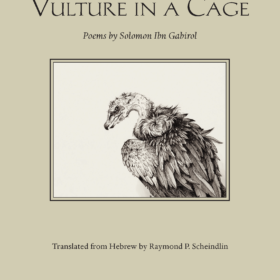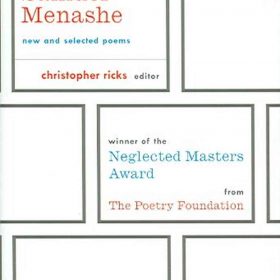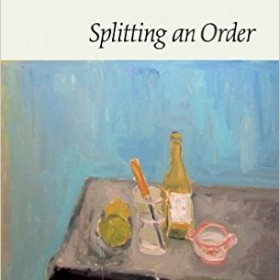-

What Comrade Trump and Comrade Tucker Want for America
https://lithub.com/on-the-ukrainian-poets-who-lived-and-died-under-soviet-suppression/Read More
-

News that Stays News from the 11th Century
The poems below are from Vulture in a Cage: Poems by Solomon Ibn Gabirol, translated from the Hebrew by Raymond P. Scheindlin. A beautiful and challenging poet, Ibn Gabirol seems strikingly modern in his methods, at least as brought over into English by Scheindlin. For more information, see Mitchell Abidor‘s fine review of Vulture in a Cage here. Behold the rose: Her body’s like her garment. When you look at her, she blushes like a bride before her husband, or like a girl who runs out screaming, her hands upon her head in horror. * Bring me to the vineyard, friend.Read More
-

Immensity’s Resonance
I’ve never, as I recall, posted while vacationing in México. It is typically an escape into extended quiet time with my lovely wife amid sea vistas, the soft rattle of palm leaves, a margarita or two, conversations with good friends in which I slaughter the Spanish language … and, of course, a stack of books to read. José Juan Tablada This time I’m also diverting myself by translating a small book of haiku-influenced poems by José Juan Tablada, called Un Día … poemas sintéticos (One Day … Synthetic Poems).Read More
-

Tiny Houses Spacious as Mansions
As with my previous Peter Handke post, I’m sharing enough of this remarkable collection by Samuel Menashe to give a sense of his work without giving away too much. I first encountered Menashe several years ago, when I volunteered to record books for the Colorado Talking Book Library. My first assignment was unenviable: a rather standard textbook focused on reading and interpreting poetry.Read More
-

Adios, Richard Wilbur
I’m not sure what kind of knuckle-dragger one would have to be not to enjoy Richard Wilbur’s polished verse, whether or not one thinks its virtues amount to “a little too regular a beauty” [Randall Jarrell, quoted in today’s Guardian obituary]. I too prefer the rough magic of Lowell, Berryman, and Plath—but, as Robert Creeley famously wrote, “Love is dead in us / if we forget / the virtues of an amulet / and quick surprise.” These are the chief virtues of Wilbur’s poetry.Read More
-

Thomas R. Smith’s “Note to Self”
As usual, Thomas R. Smith cuts through the externals to touch the beating heart of the issue by setting it in the larger context … that is, within the body politic. His fine poem “Note to Self” begins like this: Well, we die whether we stay together or fall apart. Finally the world goes on its way without us. The most scourge-like name alive today will one day be spoken seldom if at all. To what purpose this sighing and raging? To what purpose this pain? The poem is especially piquant in the wake of last night’s unpresidential debate—or presidential undebate.Read More
-

Ted Kooser: A Sampler
It’s been my privilege to be a steady if not close friend of Ted Kooser for many years, ever since he first accepted some of my work for publication in his sorely missed journal The New Salt Creek Reader. I’ve eagerly snapped up each of his books and think of him now as more of a companion than a writer. I think that’s because he makes me, a thousands more like me, feel that he’s speaking to me—not to a bust of Shakespeare or a 3-D printing/sculpture of Ashbery, but to me as a fellow human being.Read More

 Joseph Hutchison, Colorado Poet Laureate 2014-2019, has published 20 collections of poems and edited or co-edited three poetry anthologies. He currently directs two master’s-level programs for University College at the University of Denver: Professional Creative Writing and Arts & Culture Management. Joe lives with his wife, Melody Madonna, in the mountains southwest of Denver, Colorado, the city where he was born.
Joseph Hutchison, Colorado Poet Laureate 2014-2019, has published 20 collections of poems and edited or co-edited three poetry anthologies. He currently directs two master’s-level programs for University College at the University of Denver: Professional Creative Writing and Arts & Culture Management. Joe lives with his wife, Melody Madonna, in the mountains southwest of Denver, Colorado, the city where he was born. 









